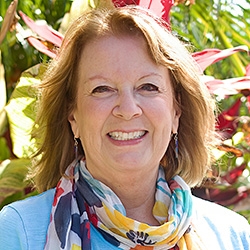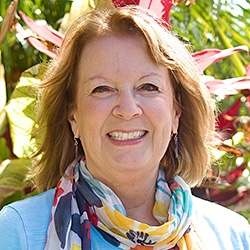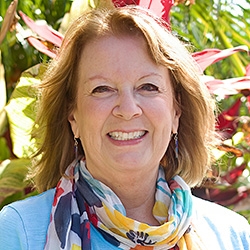

Search Results: nvc basics is optional, and nvc fundamentals is optional
-
Sylvia Haskvitz shares NVC basics to help you improve understanding and connection in communication.
-
It’s one thing to share NVC with those who’re interested, but what about those who aren’t? How does meeting someone where they are create space for learning, and help you find a pathway forward? Miki Answers this and more.
-
John introduces his Self-Connection Exercise as a mindful way of coming to awareness via OFNR. Breath: immediately observable, a reminder to observe. Body: feeling the body, awareness of sensations. Needs: an experience of wholeness that expands awareness of the totality of experience. Listen.
-
This chart helps translate words that imply blame into true feelings and unmet needs.
-
Have you ever had the experience of being truly heard and understood by another person? Or felt the astounding, breath-taking connection that arises when someone sheds all preconceived notions, gives you their full presence, and really sees you?
We call this The Amazing Power of Empathy – and the power does not stop there.
- Cultivate thriving interpersonal relationships
- Discover paths to move beyond anger, blame, and judgment
- Connect with the Divine essence in other people
- Experience greater ease and joy in all your interactions
-
Prioritize connection before solutions by understanding each other's needs first.
-
Mary Mackenzie explains that empathizing with our closest loved ones can be difficult because they matter so deeply to us, past experiences might create emotional barriers, and we might fear losing ourselves in the process.
-
Nonviolent Communication at its core is about the quality of connection that will lead to everybody's needs being met. In this months 'Purpose of NVC' episode, we ask ourselves five questions that help us gain an awareness of where Nonviolent Communication is being used.
-
Listen to this audio to learn the value of focusing on needs in an NVC model, either for the first time or as a refresher course. Living from a needs-consciousness creates abundance, clarity and choice. Using three examples from participants, Mary guides the group towards identifying and then connecting with the needs of both parties involved in each situation. It becomes clear very quickly that people choose different ways to support their needs; and many times they have the same needs in a given situation. When we understand this, we are able to create peace in our relationships and negotiations.
“Everything someone does or says is an attempt to meet a need,” says CNVC Certified Trainer Mary Mackenzie. This simple statement is a foundational understanding in Nonviolent Communication; once you gain skills at living in a “needs-consciousness” you will literally change your life and your perception of the world, and improve all of your relationships.
-
Trainer Tip: Knowing the difference between what we need and what we want someone else to do about that need can have a profound impact on our relationships and our happiness.
-
See the key principles of NVC demonstrated visually, with needs at the center.
-
Trainer Tip: In Compassionate Communication, we consider needs to be universal. That means that while we all have the same needs, such as for love, support, shelter, food, joy, caring, etc., we choose different ways to meet our needs.
-
How can you remember to use the skills and consciousness of NVC in the heat of the moment?
Jim and Jori Manske will show you how in these recordings from their 2018 course!
They teach that when and how you address the conflicts that emerge in your everyday life matters! By slowing down and considering the state of your resources before engaging in a conflict, you increase the likelihood of discovering a solution that dissolves separateness and enhances the connection and compassion you long for.
-
The human needs that we all share are the foundation of the Nonviolent Communication (NVC) process because it is in connecting to needs that we find inner freedom, empowerment and compassion.
-
Learn how Nonviolent Communication (NVC) can improve the quality of your personal and professional relationships, one interaction at a time.
-
Jim and Jori discuss the root of Nonviolent Communication, needs consciousness. Participate in guided processes to deepen your own needs consciousness.
-
Print-and-cut these 71 needs cards for one-on-one, partner or group activities, to help support the pratice of empathy. Includes nine blank cards for you to customize.
-
When you experience an emotion, your body send a message to your brain that lights up the amygdala. Then what? Listen as Sarah Peyton demonstrates the NVC practice of Naming the Feeling and Need, which calms the amygdala and enables you to move into relational space.
-
Feelings and Needs form the cornerstone of Nonviolent Communication (NVC), offering a profound framework for cultivating empathy, compassion, and authenticity in our interactions. This comprehensive 9-page Feelings and Needs Reference Guide is designed to support you in integrating these vital concepts into your daily life.
-
Join Mary Mackenzie for this 8 session exploration of the Fundamentals of Nonviolent Communication.

Quick Links
Subscription Preferences
Stay In Touch!
Looking for ways to keep up with NVC Academy news, get special offers, free resources, or words of inspiration? Here are five ways to stay engaged:


















